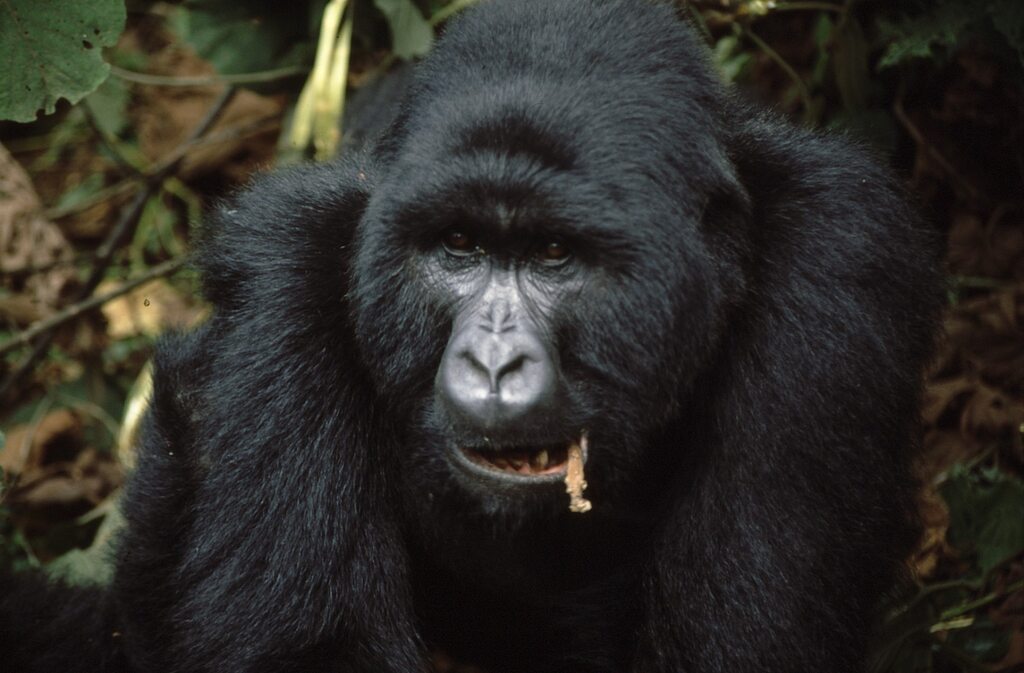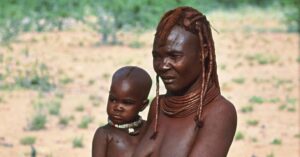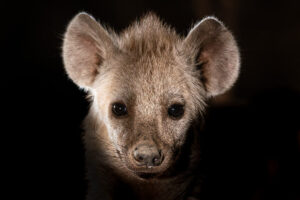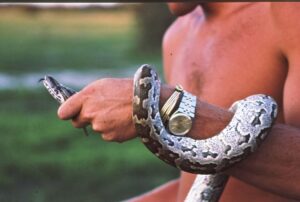The road was diabolical. Knee deep, slippery red mud had been churned into a thick doughy consistency by numerous United Nations trucks. It was all but impassable, as evidenced by the large number of vehicles that had slid off the surface and were marooned in the deep trenches created by a sharp drop off on both sides of the road.
We were slipping and sliding our way in two Land Cruisers from Ishaka in Uganda to Ishasha, the border with Zaire, where we had a date with mountain gorillas the next morning – or so we hoped. My wife, Salome, was seven months pregnant with our daughter. She was undaunted by the challenge of taking the Lindsay-Finn family of four into Zaire. This family had endured many wild safaris with us before and had shared and survived many hardships. Mountain gorillas were on the top of all our bucket lists, which was why my glowing wife refused to stay at home and miss out on this once in a lifetime opportunity. It was a decision which she may have been regretting as we lurched uncontrollably from one side of the road to the other. If we landed up in the ditch we were very unlikely to get out anytime soon. Some of the trucks looked like they had been there for weeks. Our driver was young and clearly inexperienced, which did not augur well for the interminably long road that lay ahead.
It did not take long before we got bogged in the thick mud, just inches from disappearing into a trench. Reluctantly I took off my boots and socks and stepped into the sticky mire and immediately sunk down to my knees. To my surprise the driver – who had got us into this mess – stayed in the vehicle. There was no way that he was going to wallow in the mud in his shiny shoes and freshly pressed trousers. Salome hooked up her skirt, kicked off her shoes and unhesitatingly joined me in the sludge. We loosened the mud tracks from their mountings on the side of the vehicle and slid them under the rear wheels and I told the driver to climb over the seats and sit in the back while I took control. I was caked in an ochre mud that dried like glue that stuck firmly and pulled at hair as it shrunk. Driving in that greasy muck was the most challenging I had undertaken – tougher than thick sand and as uncontrollable as being on ice, but with the real options of getting stuck or sliding right off the road as ever-present threats. Somehow, we got through the worst of the mud and arrived at the border around midday, where we were met by our Congolese guide, Medi, who spoke French and English and who had a proud, confident demeanour. He also had a larger vehicle that would take all of us.
“You made good time. We should get to your cabin on the mountain before dark,” he announced.
Medi had not anticipated the condition of the Ugandan Immigration official. He was incoherently drunk and aggressive and simply refused to stamp our passports. I argued, persuaded, tried small bribes and then threatened. He was startled when I went behind the counter and lifted him off the ground with one hand and slapped him with the other. The man was so intoxicated that he was incapable of thought, so nothing worked. He stumbled off for lunch and we had no alternative but to wait. When he returned he had sobered up a bit and contritely stamped our passports without a mutter. Our papers were all in order to cross on the Zairean side and we belatedly started our trip to the Parc Nationale des Virungas. Medi explained that we would now arrive in darkness at the car park on the mountain, from where we would have to trek up the mountain for an hour and a half to reach the cabin where we were to stay overnight.
Before that, however, we were going to drive past the refugee camp which housed up to a million Rwandan Genocide refugees. This explained the churned-up road. Hundreds of United Nations trucks supplied the refugees from the port at Dar es Salaam because the road structure in Zaire had collapsed following Independence. Under no circumstances were we to take photographs. Our cameras would be confiscated and we could be detained. So, we drove through the edge of a scene from Dante’s Inferno. Tiny makeshift dwellings crowded together, made of anything that came to hand, stretched out into the misty distance. The upmarket shelters were those made of shiny blue UN tarpaulins which offered shelter from the rain and wind, while those made of bits of iron sheeting varied according to how much material could be scrounged. Some were solid, others offered scant protection, but by far the worst were those made of cardboard that would disintegrate in the ever-present rains.
A mountain stream flowed strongly alongside the road and seemed to be the only source of water for hundreds of thousands of people. As we drove past we could see this river being used to collect water for bathing, washing clothes and, somewhat alarmingly, as a toilet: there were women filling water bottles just downstream from where others were squatting. Disease must have been rife in that over-crowded hellhole.
We kept our cameras out of sight, passed the depressing camp unmolested, and headed through some small towns and then a larger one, Goma, that a few days later was to make world headlines for reasons that were not apparent, as we drove on roads teeming with pedestrians, cyclists and rusty pick-up trucks and lined by small shops, each seeming to sell the same few items as their neighbours. It was on our return that we would come to think of Goma in different terms.
As Medi had predicted it was turning dark as we turned off the main road and headed up a mountain track and it was pitch dark when we arrived at the point where we would leave our vehicle. The car’s headlights lit up a riot. There were tens of men fighting and pushing their way towards us and half a dozen men beating them back with sticks. Alarmed, I prepared to defend my guests and my wife, but feeling around in the dark I could not find anything that remotely would pass as a weapon.
“Relax,” laughed Medi, “those men want to carry your bags to the cabin, for which you will be expected to pay them a dollar. That money is enough to pay school fees for a child for a year, so they are desperate to get the job. The men with the sticks are trying to make sure that everyone gets a turn.”
A dollar a year for school fees! There were times in later years when I paid a king’s ransom for our daughter’s school fees, that I considered a move to Goma.
The trudge up the mountain was not too strenuous and the moon pleasantly illuminated our path. The cabin was cosy with three bedrooms, a living room and a single bathroom. The beers were chilled in a drum filled with water and the food simple but surprisingly tasty. We went to bed early, our tired minds filled with the challenges of the day. We would be up before dawn to prepare for our trek up the mountain in search of the gorillas.
We rose in the dark, swallowed thick chunks of bread with sweet jam, washed down with something that passed for coffee and met the Park guide who would lead us up the mountain. He explained that the gorillas nested the night before as high up the mountain as they would ever venture, because any higher and they would be in the Arctic zone where there was little vegetation.
“It is a long, steep climb,” he said, glancing at my wife’s large belly. “Once you start you must continue as there is no one to guide you back. Are you sure that you can make it, Madam?”
“Let’s go!” my red-headed woman snapped and started striding up the mountain without waiting for us.
There was no path, so we had to break new ground up an extremely steep slope with wet slippery grass and sharp rocks to negotiate. Salome was brave and determined but very grateful for my hand in pushing and pulling her up the steeper parts. We had been climbing for around two hours when the guide announced that we were getting close to last night’s nest. He pointed out where the gorillas had made their makeshift beds and then we followed the clear track that they had made through the thick vegetation.
After about twenty minutes our guide suddenly stopped and pointed. There, in the trees, were a couple of female gorillas with their offspring cavorting around. We went closer and were greeted by the armed guards who spend their daylight hours sitting quietly nearby, keeping them safe from poachers. We came into a clearing and suddenly there were gorillas everywhere. My wife’s eyes were aflame with joy, the guests were taking photo after photo of close by mothers and infants and I spotted the silverback over the guide’s shoulder. The guide decided to follow the giant animal through some dense vegetation and I followed. We lost sight of him and the guide inched forward warily, in search of the boss.
Without warning, this enormous ape rose up next to us, within touching distance and roared, while slapping his chest. I have had many scary moments in my years in the bush but none could match that moment. I froze in terror, while the guide leapt sideways into a thistle bush. The gorilla bared his teeth as if in amusement and sauntered off. My adrenaline was still pumping as our guide extracted himself from the thistle bush, scratching his itching skin furiously, and exclaimed, “Look, he’s going for his midday rest. He will call the whole group to join him.”
We moved closer and saw that he had found an ideal clearing in the bush, like a medium sized tent and with a tree canopy covering the open area. The silverback sat on the edge of the clearing facing inwards and the guide invited me: “Go and join him with your guests.”
I looked at him as if he was completely deranged. That gorilla had almost removed my head a few moments ago. There was no way that I was going in there with my beloved wife and our guests. “You first,” I ventured.
“No room for me, but it will be good. Go now before the other gorillas come.”
So I went. My heart was racing. I sat down on the opposite side of the small clearing facing the huge ape. He could have leaned forward and made contact with my head with a single swipe of an enormous hand, but instead he looked at me benignly and plucked a twig which he used as a toothpick as he gazed down on me. Soon the clearing was filled with seventeen gorillas and six humans as the apes enjoyed a companionable siesta, apart from the youngsters, the smallest of which investigated my open camera bag while dad scrutinised my every reaction. I was happy to let the baby play with whatever toys he chose. Then the little one endearingly placed its little hand on mine. I quickly glanced up at the father, but he was very relaxed so I enjoyed the rare moment. After about forty minutes of this most wonderful encounter, the boss rose to his feet and indicated to his group that rest time was over and they had some eating to attend to. The gorillas started sauntering off and we humans, with such pent-up excitement, stood up and began chattering.
The silverback, who had remained as guard, took exception to our disrespect. He bellowed and with his feet stomped on the ground to remind us who was boss. He clearly was and, chastised, we made our way slowly back down the mountain.
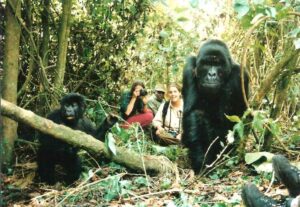
We left our cabin early the next morning on our way back to Uganda and our next stop, the Queen Elizabeth National Park. Goma, that seething town of two days ago, was eerily quiet. We passed a few military vehicles filled with armed troops but the shops were barred and the roads devoid of the masses of pedestrians and cyclists that we had expected. Medi looked worried but said nothing. When we reached the border we found that it had been closed by the military. Medi went to speak to a high-ranking officer, judging by the amount of shiny metal on his shoulders. Our once confident guide was submissively standing to attention as if he, himself, was a soldier. The officer did all the talking and dismissively interrupted Medi if he dared to open his mouth.
He came back, ashen faced, to tell us that there was very bad news. General Laurent Kabila had started a revolution out of Goma with the object of overthrowing the dictator, Mobuto, in Kinshasa on the other side of the vast country. The borders were closed indefinitely so we would have to stay in the local lodge for the night, but the army would need it the next day. We may become ‘guests’ of the army. The lodge was partly built and the bomb crater in the middle of the property disconcerting. It was the dream of a Belgian who had seen potential for comfortable accommodation in this remote area, but the dream had turned into a nightmare. It was neither the best supper nor the best night’s sleep we had ever had, wondering what would happen in the morning.
Medi interrupted our meagre breakfast with a broad smile. Kabila did not want to further complicate his life by keeping us as hostages. He was going to open the border for us before closing it again. I had no idea how the refugees would obtain supplies with the border closed. Perhaps they wouldn’t.
Never had I dreamed that I would later be so delighted to see my drunken little Ugandan Immigration official, who beamed at me like a long-lost friend.

